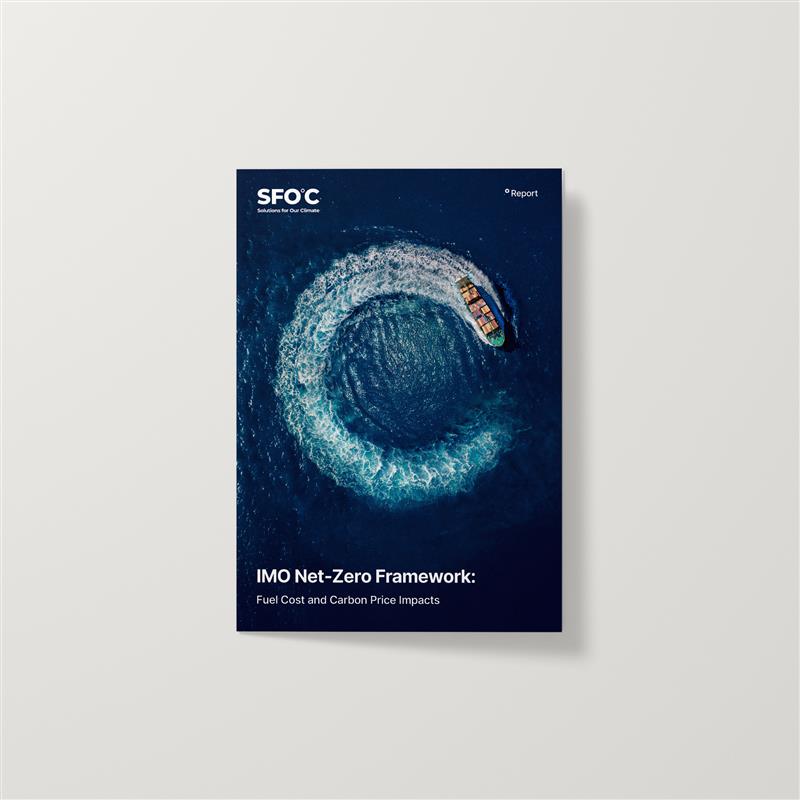
About
This report proposes the establishment of a green shipping corridor between Pyeongtaek Port—the largest hub for automobile imports and exports in South Korea—and major European ports (Bremerhaven, Antwerp, Zeebrugge, and Southampton), presenting strategic pathways for the decarbonization of the maritime sector.
Focusing on a green methanol-fueled Pure Car and Truck Carrier (PCTC) operation model, the report quantitatively assesses the potential for greenhouse gas reduction along key routes. Notably, the Bremerhaven–Pyeongtaek route alone is estimated to reduce more than 1.4 million tons of CO₂ emissions annually, given its high cargo volume.
Beyond fuel switching, the report emphasizes the importance of securing a stable green fuel supply chain, establishing supportive legal and institutional frameworks, and fostering close public-private cooperation among shipping companies, cargo owners, port operators, and fuel suppliers to make the corridor a viable reality.
With these foundational elements in place, Pyeongtaek Port is well positioned to become the starting point of Korea’s transition toward a decarbonized maritime sector.
Executive summary
The Need for Establishing a South Korea-Europe Green Shipping Corridor
In alignment with the International Maritime Organization’s (IMO) 2050 net-zero target, South Korea has announced its “Greenship-K Program” to accelerate the adoption of eco-friendly vessels and set a national goal to achieve a 100% reduction in greenhouse gas (GHG) emissions from shipping by 2050. Green Shipping Corridors have emerged as a key strategy for decarbonizing the maritime sector, and structural transformation for practical implementation remains a critical challenge.
Recommendation for a GSC for PCTCs Linking Pyeongtaek and Key European Ports
This report proposes the establishment of a Green Shipping Corridor (GSC) focused on Pure Car and Truck Carriers (PCTCs), linking Pyeongtaek Port—South Korea’s largest hub for automotive trade—with major European ports including Bremerhaven, Antwerp, Zeebrugge, and Southampton. Unlike container terminals, car terminals require minimal heavy cargo-handling infrastructure, making them more suitable for conversion to green port operations. Given the steady cargo volumes typically seen in PCTC services, the route presents high potential for sustainable, long-term operation.
Introducing a Low-Emission Shipping Model Based on Green Methanol
As the global shipping industry accelerates its shift toward clean fuels, methanol-powered vessels are gaining traction as a viable alternative to conventional fossil fuels. The Korean government has announced plans to deploy green methanol-fueled ships on the Busan–Tacoma route starting in 2027. According to Clarkson Research, there are currently 361 methanol-powered ships in operation or on order worldwide, including 30 Roll-on, Roll-off (RoRo) or Pure Car Carrier (PCC) vessels. In this context, this report proposes the adoption of green methanol as the primary fuel for the Korea–Europe corridor, with a long-term goal to transition toward e-methanol. This shift is expected to reduce CO₂ emissions by more than 70% compared to conventional fossil fuel use.
Proposal for a Public-Private Partnership Driven Implementation Strategy
Robust public policy support is crucial to establish a Korea–Europe Green Shipping Corridor. This includes enacting a dedicated Green Shipping Corridor Bill, creating fuel supply infrastructure, and providing expanded financial support. At the same time, active participation from key private-sector stakeholders such as shipping companies, fuel suppliers, cargo owners, and financial institutions will be indispensable. Through targeted financial incentives from the government, shipping lines can invest in eco-friendly vessels, while cargo owners can adopt transport options that utilize low-emission non-fossil fuel, helping to stabilize demand. Financial institutions can further accelerate market formation through increased investment, thereby enhancing both the feasibility and competitiveness of the green corridor.
Press release
Media coverage
- South Korea–Europe green shipping corridor promises 70% CO₂ cut
- SOUTH KOREA–EUROPE GREEN SHIPPING CORRIDOR PROMISES 70% CO₂ CUT
- Pyeongtaek–Europe Shipping Corridor Targets 70% CO2 Cut
- Korea-Europe Corridor Targets 70% CO2 Cut with Green Methanol
- Koreja i Europa kreću u zelenu pomorsku tranziciju: 70% manje CO₂ na ključnoj ruti
- SFOC report proposes green methanol-fuelled Korea-Europe shipping corridor
- Corea-Europa, il corridoio di navigazione green riduce le emissioni del 70%












![[Report] Achieving Net Zero in International Shipping through Korea-US-Japan Green Shipping Corridor](https://content.sfoc.tapahalab.com/images/research/s11Jime.jpg)





